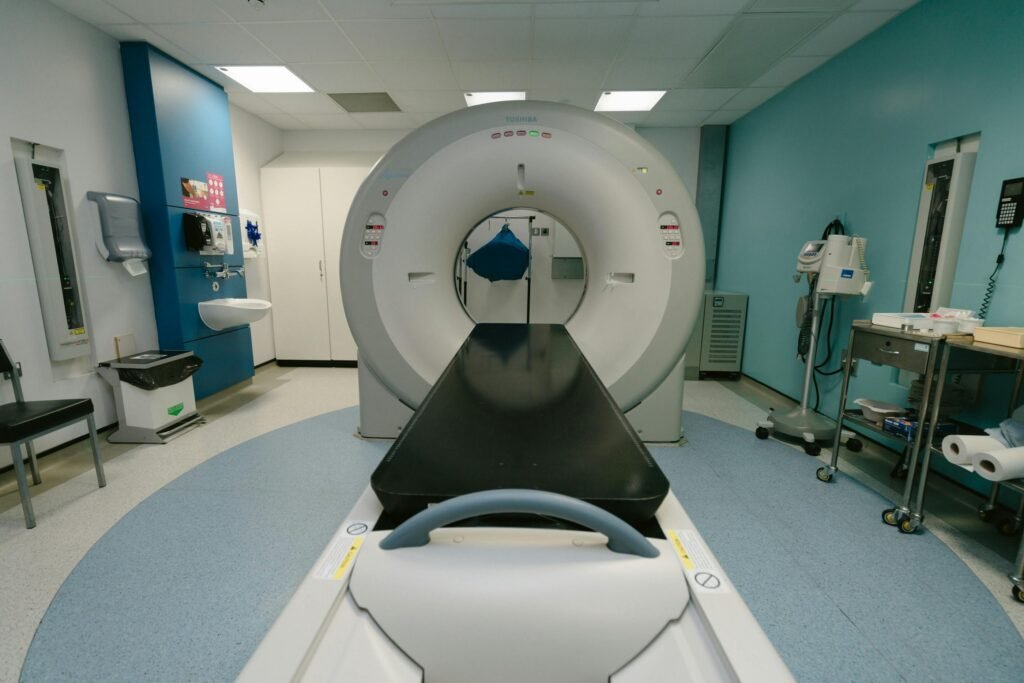Introduction
In today’s healthcare industry, MRI technologists play a crucial role in diagnosing and treating various medical conditions. With the increasing demand for medical imaging, you might wonder, “Can you make a decent living as an MRI technologist?” This article explores the financial stability, career prospects, and overall job satisfaction of MRI technologists in the U.S. to help you determine if this career path is right for you.

What Do MRI Technicians Do?
MRI technologists, also known as MRI technicians, are healthcare professionals who operate MRI (Magnetic Resonance Imaging) machines to capture detailed images of the inside of a patient’s body. These images are essential for diagnosing conditions like torn ligaments, tumors, and spinal issues.
Daily Duties of MRI Technologists
MRI technicians have a variety of responsibilities that keep them busy. Their typical tasks include:
- Operating MRI Machines: They use MRI machines to produce high-quality images of a patient’s internal structures.
- Preparing Patients: MRI techs explain the procedure to patients and ensure they are comfortably positioned for the scan.
- Monitoring: They keep a close eye on both the MRI machine and the patient during the imaging process to ensure safety and accuracy.
- Collaborating with Radiologists: After capturing the images, MRI technicians work with radiologists who interpret these images to make diagnoses.
- Managing Equipment: They handle equipment maintenance and troubleshooting to ensure optimal performance.
Education and Training: Steps to Becoming an MRI Technician
Education Requirements
Becoming an MRI technologist requires specific educational qualifications. Here’s a breakdown of what you need:
- High School Diploma: Your journey begins with a high school diploma or equivalent.
- Associate Degree or Certificate: Most MRI technologists earn an associate degree in MRI technology or a related field. Some opt for certificate programs that offer specialized training in MRI technology.
- Certification: Certification from the American Registry of Radiologic Technologists (ARRT) is highly recommended, even though it’s not mandatory in all states. Certification enhances job prospects and is preferred by many employers.
- State License: Certain states require MRI technologists to obtain state-specific licenses.
Career Advancement
For those aiming for career growth, pursuing a bachelor’s degree in a related field can open doors to advanced positions like MRI specialist or radiologic department manager.

MRI Technician Programs
Several accredited programs provide the necessary education and hands-on experience to become an MRI technologist. Here are some notable programs:
- Forsyth Technical Community College: Located in Winston-Salem, North Carolina, this college offers a top-ranked associate degree program. The program includes extensive hands-on experience and has a 93% success rate on certification exams.
- Midwestern Career College: Based in Chicago, this college offers an 80-week associate degree program with a comprehensive externship.
- Lansing Community College: This Michigan college provides a 16-month online associate degree program, integrating clinical education.
- Gurnick Academy of Medical Arts: With locations in California, Arizona, Nevada, and Florida, Gurnick Academy offers an 18-month program featuring both technical instruction and clinical experience.
MRI Technician Internships
Clinical experience is crucial for becoming a successful MRI technologist. Internships and clinical apprenticeships provide practical experience and make candidates more competitive in the job market.
Types of Internships
- Hospital-Based Internships: Offer real-world experience in a clinical setting.
- Clinical Apprenticeships: Provide hands-on training under the guidance of experienced professionals.
Finding and Applying for Internships
To secure an internship, look for opportunities through your educational program or directly with healthcare facilities. Gaining practical experience will help you prepare for certification exams and job responsibilities.
What Is the Duration Required to Become an MRI Technician?
The time required to become an MRI technician varies depending on the educational path you choose. Generally, it takes about two to two and a half years to complete the necessary training and certification.
- Direct Path: Enrolling in a program that offers both an associate degree and MRI training is the quickest route.
- Sequential Path: If you first obtain an associate degree in a related field, followed by a dedicated MRI training program, the total duration may extend to two years or more.
Career Outlook for MRI Technologists
Demand for MRI Technicians
The demand for MRI technologists is robust and growing. The healthcare industry is expanding due to an aging population and increasing prevalence of chronic diseases. The Bureau of Labor Statistics predicts a 6% increase in the demand for MRI technicians over the next decade.
Job Security and Opportunities
MRI technologists enjoy good job security and a positive job outlook. The specialized nature of the profession ensures that qualified individuals are in high demand, providing stability and numerous employment opportunities.
What Is the Salary Range for MRI Technicians?
Average Salary
The average salary for MRI technologists can vary depending on location, experience, and other factors.
- National Average: According to the U.S. Bureau of Labor Statistics, the median annual salary for MRI technologists is approximately $74,690.
- High Salary States: MRI technicians in California, the District of Columbia, and Hawaii often earn higher salaries, with figures reaching over $90,000.
Salary Comparisons
| State | Average Annual Salary |
| California | $106,040 |
| District of Columbia | $96,100 |
| Hawaii | $96,000 |
| Washington | $95,850 |
| Alaska | $91,360 |
Benefits of Being an MRI Technologist
MRI technologists typically enjoy a range of benefits that contribute to their overall job satisfaction. These benefits often include:
- Health Insurance
- 401(k) Plans and Matching
- Paid Time Off
- Continuing Education Credits
- Disability Insurance
Pros and Cons of the MRI Technologist Career
Pros
- Shorter Training Period: Compared to other healthcare careers, becoming an MRI technologist requires less time in education and training.
- Competitive Salary: MRI technologists generally earn a good salary with opportunities for increases as experience grows.
- Work-Life Balance: The typical work hours are often more regular than in other healthcare roles, contributing to a better work-life balance.
Cons
- Physical Demands: The job can be physically challenging and may involve long periods of standing.
- Emotional Strain: Working with patients who are seriously ill or in distress can be emotionally taxing.
- Responsibility: MRI technologists are responsible for ensuring patient safety during imaging procedures.
Overall Job Satisfaction
Job satisfaction for MRI technologists is generally high. Many professionals find the role fulfilling due to the opportunity to help patients and the relatively good work-life balance. According to various job satisfaction surveys, MRI technologists rate their job satisfaction positively, with an average rating of 4.05 out of 5.
Closing Ideas: Steps to Become an MRI Technologist
To embark on a career as an MRI technologist, follow these steps:
- Graduate from High School: Start with a high school diploma or equivalent.
- Complete Required Education: Enroll in an associate degree or certificate program in MRI technology.
- Obtain Certification: Get certified by the ARRT to enhance your job prospects.
- Pursue State Licensure: If required in your state, obtain the necessary license.
- Gain Practical Experience: Complete internships or clinical training to gain hands-on experience.
FAQs
What is the main difference between an MRI technologist and a radiologic technologist?
MRI technologists specialize in MRI imaging, while radiologic technologists may perform a range of imaging procedures, including X-rays and CT scans.
How much does an MRI technician make in different states?
Salaries vary by state. For example, MRI technicians in California and the District of Columbia earn higher salaries compared to those in other states.
What are the best programs for MRI technology?
Top programs include those offered by Forsyth Technical Community College, Midwestern Career College, and Lansing Community College.
How long does it take to complete MRI technician training?
Training typically takes about two years, including both educational coursework and clinical experience.
Are there any scholarships available for MRI technician programs?
Yes, some programs offer scholarships and financial aid options to help with tuition costs.
Conclusion
Becoming an MRI technologist offers a rewarding career with good financial stability and job security. With competitive salaries, a range of benefits, and a positive job outlook, this profession provides ample opportunities for those interested in the healthcare field. If you have a passion for technology and patient care, pursuing a career as an MRI technologist might be a great fit for you.
boost your business with the help of guest posting contact now (contact form link)
